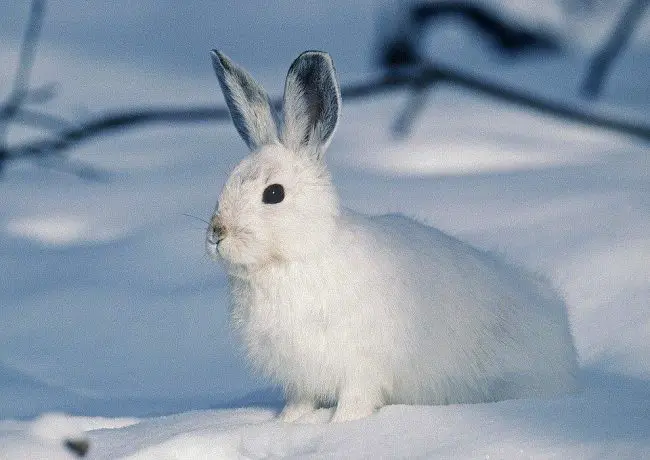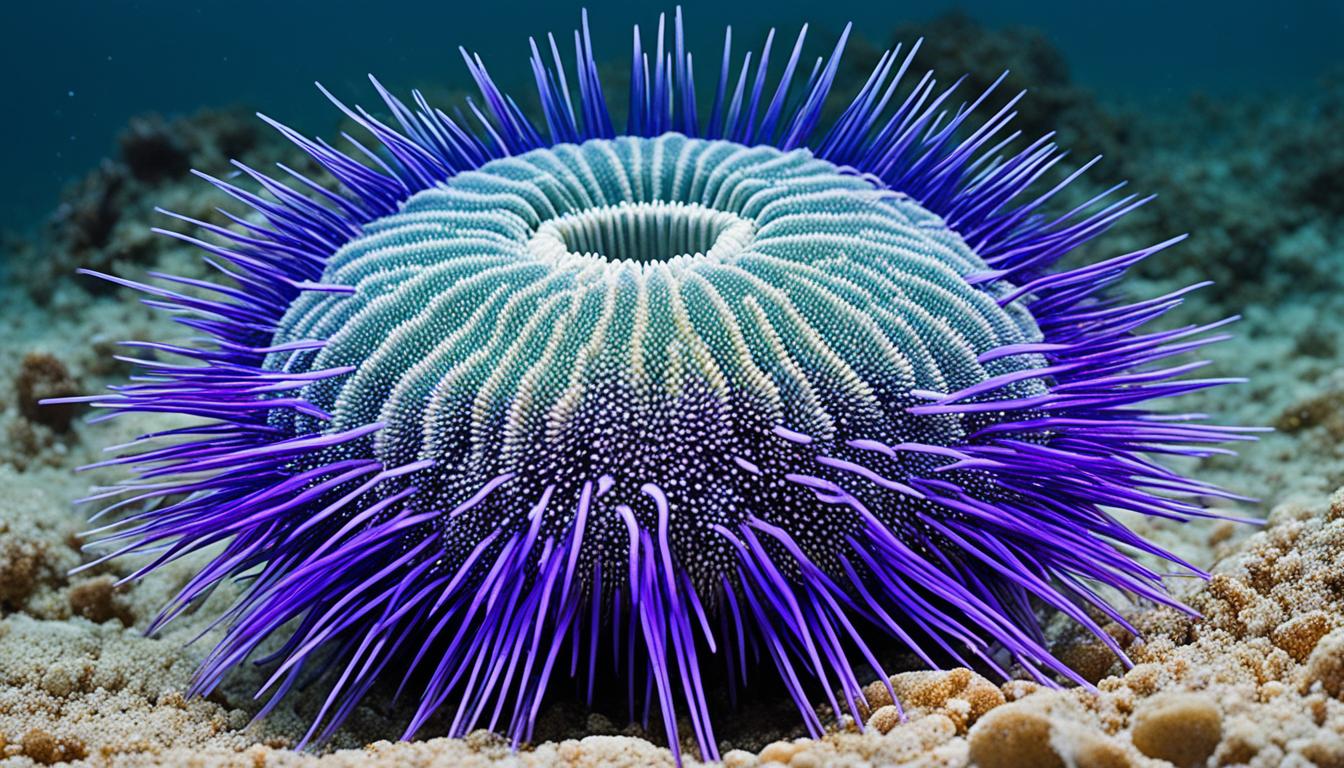It is a common concept that rabbits hibernate in the winter, but in reality, rabbits don’t hibernate. Hibernation is a process in which animals conserve energy during the winter by entering a deep sleep-like state.
They use their burrows to keep warm and find food during these colder months. When you look out for rabbits in winter, you can often see them both inside and outside of their burrows, eating whatever vegetation is available.
If you do not see rabbits in your yard when it is colder or snows, it may mean they have found a better food source elsewhere.
Many animals hibernate in the winter because the harsh weather and food scarcity can kill them.
Do rabbits need to hibernate?
No, it is no need for rabbits to hibernate. Although rabbits do not hibernate, they do get more sleep than humans.

Why Don’t Rabbits Hibernate?
Domesticated rabbits have their human owners take care of them during the harsh, cold winter season. Hibernation is a way for an animal to withstand warm and conserve energy in order to survive in cold winter.
While some animals, such as bears, sleep through the winter by hibernating, rabbits do not have this adaptation. Instead of burrowing underground or entering a state of deep sleep, rabbits rely on other methods to withstand warmth and survive in the winter.
how do rabbits keep their body warm in the winter?
They use their thick fur coats to trap heat and keep themselves warm in cold weather. They also frequently groom themselves to help regulate their body temperature and keep them insulated from the cold winter air.
Rabbits also rely on their strong sense of smell to detect danger and avoid predators while they are out foraging for food during the cold winter.
Where Do Rabbits Go In The Winter?
When the cold weather of winter arrives, rabbits go into the places where they can migrate in the winter. The rabbits stay warm, they will seek out a burrow or bush to hide in. These areas provide insulation and protection from the cold winter months.
Wild rabbits get their food source to help them get through the winter. To help them in winter, people can provide supplemental food sources that allow rabbits to stay healthy and survive until spring arrives.
Most species of rabbit, including wild European rabbits (the same species as our pet rabbits), will hide out in their underground network of tunnels during the winter.
How do rabbits survive in the winter?
Yet in the winter months, they tend to disappear. So you may be wondering if rabbits hibernate in winter. Rabbits have the ability to survive in the winter since they stay in the same place and can find food sources throughout the season.
Rabbits need to stay warm, so they may burrow under bushes or build nests from grasses and leaves to help them survive. Since rabbits are able to eat a wide range of foods, their food supply helps them survive even when temperatures drop.
In addition, rabbits may huddle together with other rabbits during cold nights which helps keep them warm and helps them survive throughout the winter.
Therefore, by staying in one place, finding enough food, and huddling together for warmth, rabbits are able to survive in the winter.
What makes winter difficult for rabbits?
Winter can be a difficult time for rabbits. In order to survive the winter, they must rely on their natural instincts and resources throughout the winter.
The winter survival rate of rabbits is not very high due to the harsh weather conditions and limited food sources. To give rabbits a better chance at survival in the winter, they must find ways to adapt and take advantage of whatever resources are available.
These include burrowing underground, where their body temperatures can remain steady; foraging for food every day; and finding shelter from harsh winds or snowfall.
Unfortunately, these are all measures that require a lot of energy and it can cause hypothermia in rabbits if they are unable to find enough sustenance.
Where Do Rabbits Live in The Winter?
Rabbits are well adapted to living in cold weather, and during the winter they spend most of their time in a burrow. This helps them conserve energy and stay safe from predators.
You can spot rabbits all year round, but many rabbits will be more likely to be seen during the warmer months. Domestic rabbits, on the other hand, have been bred over many generations and are quite resilient when it comes to cold weather.
Therefore, they can remain outside throughout the winter with proper care and protection from their owners. As long as their cages are placed in sheltered areas away from wind and rain, many rabbits can safely live outdoors even during the harshest of winters.
How can you help wild rabbits in the winter?
There are multiple different things you can do to help a wild rabbit to survive in winter. Rabbits usually adapt to winter by staying in one place, restricting movement, while actively seeking food sources nearby.
- One of the most important ways to help rabbits during the winter is to provide them with supplemental food sources. Providing hay, alfalfa, or other vegetation is a great way to help these animals survive the cold winter.
- You can also set up shelters around your property that are specifically designed for rabbit habitat and easy access to food sources and cover. Planting shrubs and bushes can also create a better environment for wild rabbits in winter as they provide natural protection from predators as well as shelter from the elements.
- When temperatures drop too low, you can even place old blankets or sleeping bags in an area that’s hidden enough so that predators can’t get to it but still accessible by wild rabbits.
- While helping wild rabbits during the winter isn’t always easy, there are many things you can do to increase their chances of survival. By providing them with supplemental food sources, shelter, and water, you are giving these beautiful wild animals their best chance at successful winter survival.
Can I Feed The Wild Rabbits In The Winter?
Yes, you feed the rabbit in the winter. The ability of rabbits to withstand the cold isn’t terrible, but they have to consume more to make up for the extra amount of energy they need to maintain their body temperature.
As a result, the quantity of feed that is supplied during the winter will need to be raised significantly. Since rabbits don’t hibernate or migrate during winter, they require an immediate food source that they can rely on throughout the season.
What Do Rabbits Eat In The Winter?
Rabbits are busy looking for food during the winter season.
Two primary sources of nutrients allow them to live in environments where they do not have convenient access to their preferred grasses, such as hay and clover.
Rabbits eat twigs, buds on trees and bushes, and bark that is poor in nutrients. The second item that they consume is eaten in the winter called cecotropes, which is food that has only been half-digested.
How To Keep Rabbits Out Of My Yard In The Winter?
In order to keep rabbits out of your yard in the winter, it is important to understand why they might be there in the first place.
Wild rabbits do not hibernate during the winter and will migrate to areas that offer food sources. To keep rabbits away, remove any potential food sources, such as bird feeders, pet food, garden produce, and compost piles.
Planting dense shrubs or hedges can also provide protection from wild rabbits entering your yard. If you have a rabbit problem already, consider using a live trap to relocate them. You could also encourage them by providing shelter during the winter months with brush piles or logs that offer protection from predators and the elements. Once these methods are implemented and maintained, you should be able to successfully keep rabbits out of your yard in the winter months.
How Cold Can Rabbits Tolerate?
Rabbits are wild animal that is not usually associated with cold temperatures, however, they can actually tolerate quite a bit of cold. During the winter months, rabbits use their fur to remain warm and survive the cold temperatures.
Rabbits typically live in climates where temperatures can drop low, so they have adapted over time to withstand more extreme temperatures than domestic rabbits.
Generally speaking, Rabbits can tolerate temperatures as low as minus 18 degrees Celsius, although this varies depending on the breed of rabbit and their physical health.
Rabbits that are kept as pets and live indoors should not be left outside in cold weather, as they may become too cold to survive without proper protection or care.
how much cold can rabbits tolerate in the winter?
Rabbits are able to survive in the winter by growing a thick winter coat to insulate them from the cold weather. Wild rabbits are creatures that are able to adapt to temperatures as low as -2 degrees Celsius (or 30 degrees Fahrenheit).










